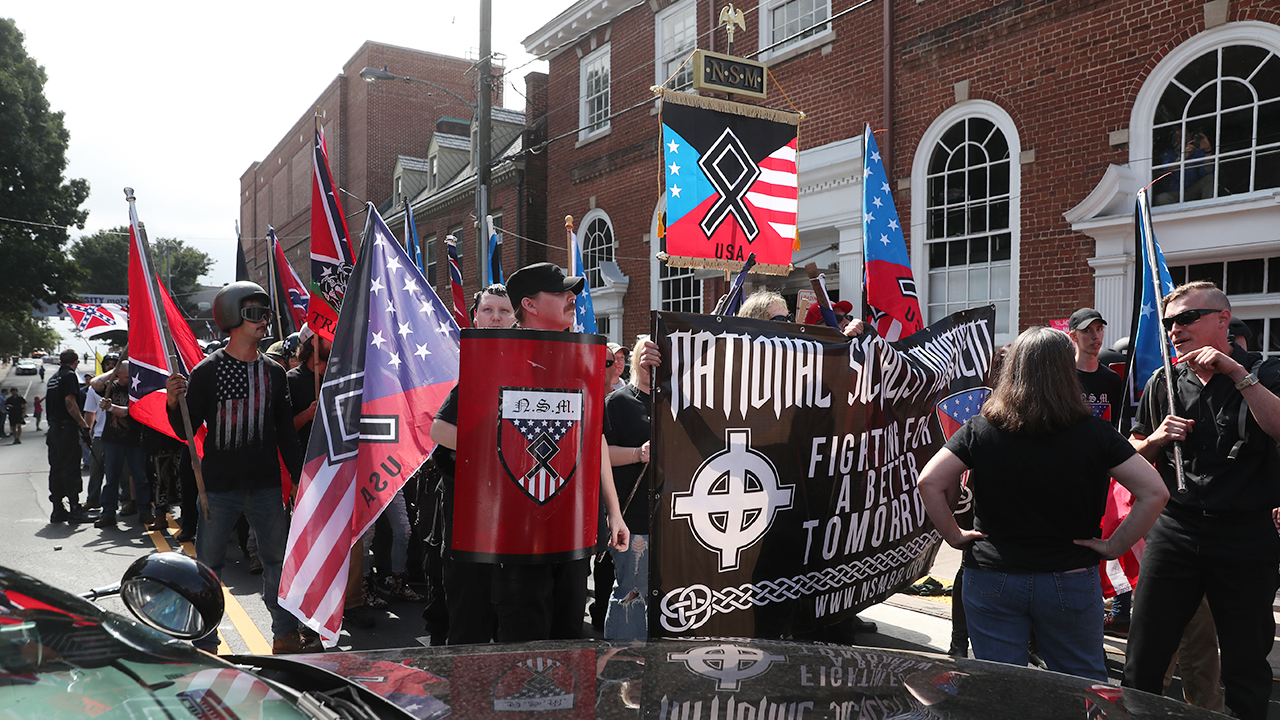This op-ed was originally published December 8, 2017 at thehill.com.
It was bad enough last August when President Trump said there were “some very fine people” marching with torches and chanting Nazi slogans in Charlottesville.
But now, he’s at it again.
His retweeting of highly inflammatory propaganda videos from anti-Muslim extremists in the United Kingdom does nothing but give additional aid and comfort to some of the most despicable elements of American society – the racists and xenophobes who make up a growing white supremacist movement.
At the same time, Trump has revived the racist “birther” theory about President Barack Obama, the falsehood that launched his political career and endeared him to the radical right.
It doesn’t matter whether this is a deliberate strategy by Trump to distract the public or to shore up his base – or whether it’s simply a pathological lack of impulse control. The impact is the same.
By exploiting racial, ethnic and religious divisions, the president is not only dividing our country along its most fragile lines, he’s continuing to energize white supremacists. And, as President George H.W. Bush said when he signed the Federal Hate Crimes Statistics Act of 1990, “hate breeds violence, threatening the security of our entire society.”
We know those words to be true. The public expressions of our political leaders matter greatly. That’s why President George W. Bush made it a point to say, after 9/11, that our country’s enemy was not Islam but rather the terrorists who were “traitors to their faith.”
And that’s why it was important when, after Charlottesville, Congress passed a joint resolution recognizing the growing threat from “hate groups that espouse racism, extremism, xenophobia, anti-Semitism, and White supremacy” and urging the president to “use all available resources” to address the threat.
Trump signed the resolution, but it’s clear that he has real no intention of honoring it – because he’s part of the problem. It’s also clear that the movement Trump continues to validate represents a serious threat to the “security of our entire society,” as the elder Mr. Bush put it.
Hate crimes have risen for two straight years, according to the FBI, corresponding with two consecutive years of growth in the number of hate groups. The fact that these trends coincided with Trump’s xenophobic presidential campaign is, of course, no coincidence.
We’ve also seen numerous acts of terrorism committed by white supremacists in recent years.
Charlottesville was a wake-up call for our country. It was a reminder that the oldest form of terrorism our country has known is still with us. It was proof that the white supremacist movement has been energized by Trump – proof that, to use U.S. Rep. Mark Sanford’s words, his campaign “unearthed some demons.”
The marchers’ chant of “You will not replace us” was an expression of paranoia over cultural displacement. It reminds us of what Dylann Roof said in 2015 as he massacred nine African Americans at the “Mother Emanuel” church in Charleston: “You’re taking over our country.”
And the marchers’ chant of “blood and soil,” their anti-Semitism, reminds us of one of the darkest chapters in modern history.
Congress must not underestimate the danger – not just to our physical safety, but to the very soul of our nation.
As we know, the fight against radical-right terrorism has too often been neglected as the nation responded to deadly threats from abroad. For example, the Domestic Terrorism Executive Committee, a high-level task force assembled in the wake of the Oklahoma City bombing, did not meet for 13 years after the 9/11 attacks.
The Charlottesville resolution was important, but it contains no enforceable provisions. Congress should take additional steps to institutionalize the focus on radical-right terrorism within federal law enforcement agencies so that it will always be given the attention it deserves. The Domestic Terrorism Prevention Act, which has been introduced by Senator Dick Durbin, would provide a mechanism for accomplishing this. It would require Department of Homeland Security, the Justice Department, and the FBI to establish offices to analyze and monitor domestic extremist threats.
The threat from white supremacy is the oldest our country faces. Charlottesville demonstrates that it’s lethal, and it’s likely to be with us long after we, hopefully, have addressed the threat of terror from groups like ISIS.
There should be no question where our elected leaders stand. As a nation, it is time to speak out strongly and act decisively.



